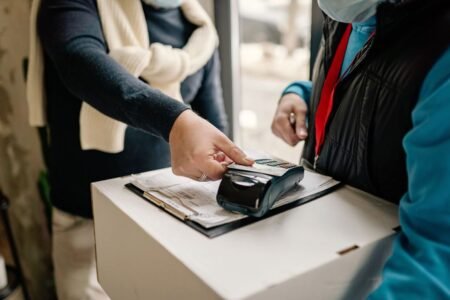As part of an intensified battle against tax fraud, the European Commission on 6 February 2014 launched the process to start negotiations with Russia and Norway on administrative cooperation agreements in the area of Value Added Tax (VAT). The broad goal of these agreements would be to establish a framework of mutual assistance in combating cross-border VAT fraud and in helping each country recover the VAT it is due. VAT fraud involving third-country operators is particularly a risk in the telecoms and e-services sectors. Given the growth of these sectors, more effective tools to fight such fraud are essential to protect public budgets. Cooperation agreements with the EU’s neighbours and trading partners would improve Member States’ chances of identifying and clamping down on VAT fraud, and would stem the financial losses this causes. The Commission is therefore asking Member States for a mandate to start such negotiations with Russia and Norway, while continuing exploratory talks with a number of other important international partners.
Advertisement
What is the scale of VAT fraud in the EU? What is the scale of cross-border VAT fraud by operators in third countries?
In November 2013 the Commission published a report on the VAT gap in Europe. This estimated that the difference in the amount of VAT anticipated by Member States, and the amount actually collected, was 193 billion, or 1.5% of GDP. This amounts to 18% of theoretical VAT (i.e. all expected revenue). The VAT gap is not only due to fraud and evasion, but also to legal tax avoidance, bankruptcies, financial insolvencies and miscalculations. Nonetheless, VAT fraud is estimated to comprise a significant amount of the overall figure.
It is not possible to extrapolate from the VAT Gap figures how much relates to fraud in transactions carried out with non-EU operators. However, Member States’ experience has shown that VAT fraud schemes often are set up with counterparts located in third countries. In addition, the risk of VAT fraud or evasion is deemed to be particularly high in e-commerce activities, since the identification of suppliers, customers and the place of supply is much more difficult to determine than in traditional transactions. E-commerce (good and services) is increasingly important to the EU and international economies, with revenue in this sector reaching USD 680 billion worldwide in 2011, and increasing by up to 18.9% per annum. This type of commerce is characterised by innumerable B2C supplies, with mini transactions and maxi profits, where both the supplier and the customers are often difficult to identify. This makes it susceptible to VAT fraud, especially as there are no specific controls or tools for the exchange of information with third countries.
How do EU Member States cooperate against VAT fraud?
As general rule, within the EU, taxation takes place where the customer is established. Therefore, when a customer receives goods or services from abroad and fails to report these purchases, the tax administration where they are based needs to ask the Member State where the supplier is established for information. This helps to assess the correct amount of VAT due on the purchase.
EU rules (Regulation EU 904/2010) set down a number of tools for Member States to cooperate with each other on VAT collection and tackling fraud, including:
- Exchange of information on request: a competent authority sends a request for information and administrative enquiry via standard electronic forms to another Member State which has up to 3 months to provide the information required.
- Exchange of information without prior request: Member States exchange pre-established information via standard forms every 3 months.
- Automatic access to certain data on intra-Community operators and transactions stored in national databases via a secured electronic platform called VIES (VAT information exchange system).
- Request for administrative notifications: Member States can ask other Member States to notify the addressee all instruments and decisions concerning the application of the VAT legislation.
- National officials of Member States can be present in administrative offices and participate in administrative enquires in other Member States.
- Member States have the possibility to carry out simultaneous controls to traders involved in the same intra-Community chain of transactions or fraud.
- Eurofisc is an instrument where Member States have a multilateral exchange of information for the early detection of scheme of frauds. Eurofisc is composed of 3 operational working fields (where Member States exchange information) and one VAT observatory (where Member States exchange best practices and information on trend of fraud).
Why does the Commission want to start negotiating with Russia and Norway on VAT cooperation agreements?
Unlike many third countries, Norway and Russia have a similar VAT system to the EU. As neighbouring countries, Norway and Russia have already participated in multilateral controls or have attended Eurofisc (VAT observatory) meetings as observers. However, tax officials who have been cooperating with the tax administrations of these countries have signalled the need for an EU agreement on administrative cooperation in the field of VAT, in order to exchange information and to assess VAT liabilities more effectively. National authorities, tax auditors and Eurofisc officials would benefit from tools which formally allow cooperation with Russia and Norway on a permanent basis.
Does the EU have VAT administrative cooperation agreements with any other countries?
Currently, the EU does not have VAT administrative cooperation agreements with any other countries. With Switzerland, the EU has an agreement to counter fraud and all other illegal activities affecting their financial interests, which covers VAT too. Contacts have been established with Canada, China and Turkey on this issue, given that they are amongst the EU’s main commercial partners. Furthermore, even though US consumption taxation is based on a system of sales taxes, the Commission believes a dialogue with the USA to improve EU-US cooperation in fighting fraud in the field of VAT/sale taxes would also be very useful.
How would agreements with Russia and Norway help to prevent VAT fraud?
Companies established outside the EU which supply telecommunication, broadcasting and electronic services to consumers in a Member States should charge VAT in the Member State where the consumers enjoy the service. Since these kind of transactions are not subject to customs controls, it is very easy for non-EU companies to avoid declaring their supplies in Europe. This is a problem that works both ways: companies could declare in Norway or Russia that they are supplying services to the EU while, in reality, the customers could actually be established within those countries themselves. In which case, those services should be subject to VAT in their own country. An EU agreement with Russia and Norway would allow tools like multilateral controls or Eurofisc to be used to optimal effect, in order to establish the right place of supply and amount of VAT due for these kinds of transactions.







